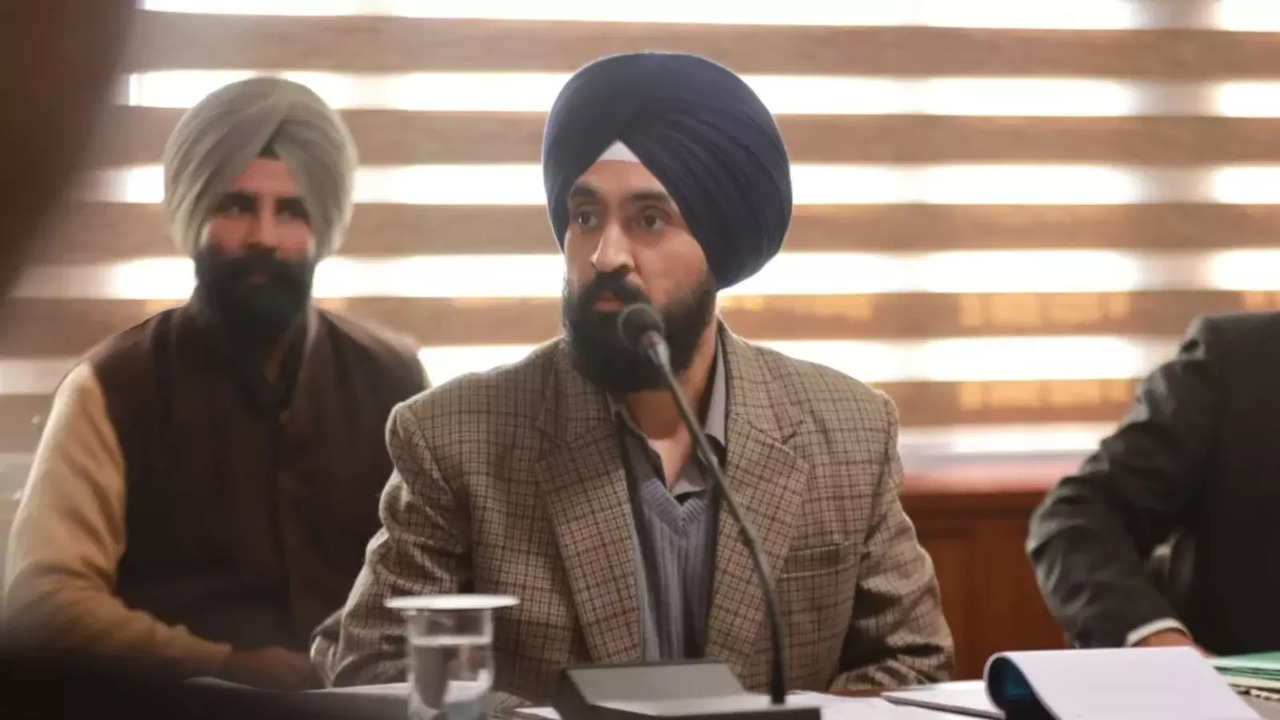The Censorship Circus: Punjab ’95 and the Battle for Artistic Freedom
Jassi Sangha and Anmol Dhaliwal


In the colourful tapestry of Indian cinema, where narratives often reflect the complex realities of society, the suspension of Punjab ’95 by the Central Board of Film Certification (CBFC) shines a spotlight on the increasingly precarious relationship between art and authority.
Starring the celebrated Punjabi singer Diljit Dosanjh, this film aims to chronicle the impactful life of social activist Jaswant Singh Khalra, a figure who courageously unearthed the tragic truths surrounding the Punjab insurgency of the late 20th century. However, rather than gracing the silver screen, it appears that Punjab ’95 is destined for the editing room, grappling with a staggering demand for modifications.

Initially poised to debut at the prestigious Toronto International Film Festival (2023), the film’s journey took a sharp turn just days before its screening, resulting in a mysterious rejection devoid of any substantial explanation. Since then, the CBFC has escalated its demands, reportedly increasing the number of required cuts from 85 to a staggering 120. Among these directives is the instruction to change the protagonist’s name and the film’s title to *Sutlej*, a move that could arguably dilute the film’s very essence. One can’t help but wonder: what is a biopic without its subject?
The rationale behind such draconian measures is puzzling. The board claims that retaining Khalra’s name and asserting the film’s basis in real events might incite a “swaying of sentiments.” Yet, one must ask, in an independent country like India, where the vibrant voices of artists and filmmakers should thrive, how can such censorship be justified? Is it not the very role of cinema to challenge societal norms and provoke thought?
In stark contrast, the CBFC has been more lenient with politically charged films, granting them certificates with seemingly fewer obstacles. This inconsistency raises questions about the criteria employed by the board and its implications for creative expression. As India annually submits films for Oscar consideration, one can only lament the chasm that separates our cinematic achievements from those of other nations. With artistic expression continuously stifled, how can we hope to make a mark on the global stage?
The struggle of Punjab ’95 is not merely a battle for a single film; it symbolizes the larger fight for artistic freedom in a country where creative minds often find themselves shackled by arbitrary rules and regulations. The film’s producers, including Ronnie Screwvala, have vehemently argued that altering Khalra’s name would not only be disrespectful but would also strip the film of its biographical authenticity. After all, how can a story about a martyr truly honour its subject if it’s forced to disguise the very name that encapsulates his struggle?
As the film remains in limbo, it’s essential to consider the broader implications of this situation. When governments impose labels on what can and cannot be portrayed, they undermine the very fabric of democracy. The issue at hand is not just about Punjab ’95 but about the future of storytelling in India. It compels us to reflect: is this truly the kind of environment we wish to cultivate for our artists?
In conclusion, the saga of Punjab ’95 serves as a crucial reminder of the vital importance of freedom of speech and the need for a more transparent and equitable system of film certification.
As audiences and advocates for artistic expression, we must raise our voices against censorship and demand that cinema remains a platform for authentic storytelling—unfiltered, unabashed, and unapologetically real. Indian director and producer Honey Trehan has directed this poignant biography, which continues to struggle for release amid these overwhelming challenges.
Zordar Times is an independent media organization that delivers news, opinions, and information free from political or business influence. We remain committed to unbiased reporting and transparency. To sustain our mission, we rely on financial support from readers like you. By contributing any amount you desire, you empower our journalists and writers to carry out their duties without fear or pressure. Click the button below to support us. Thank you for standing with us!

Leave a Reply